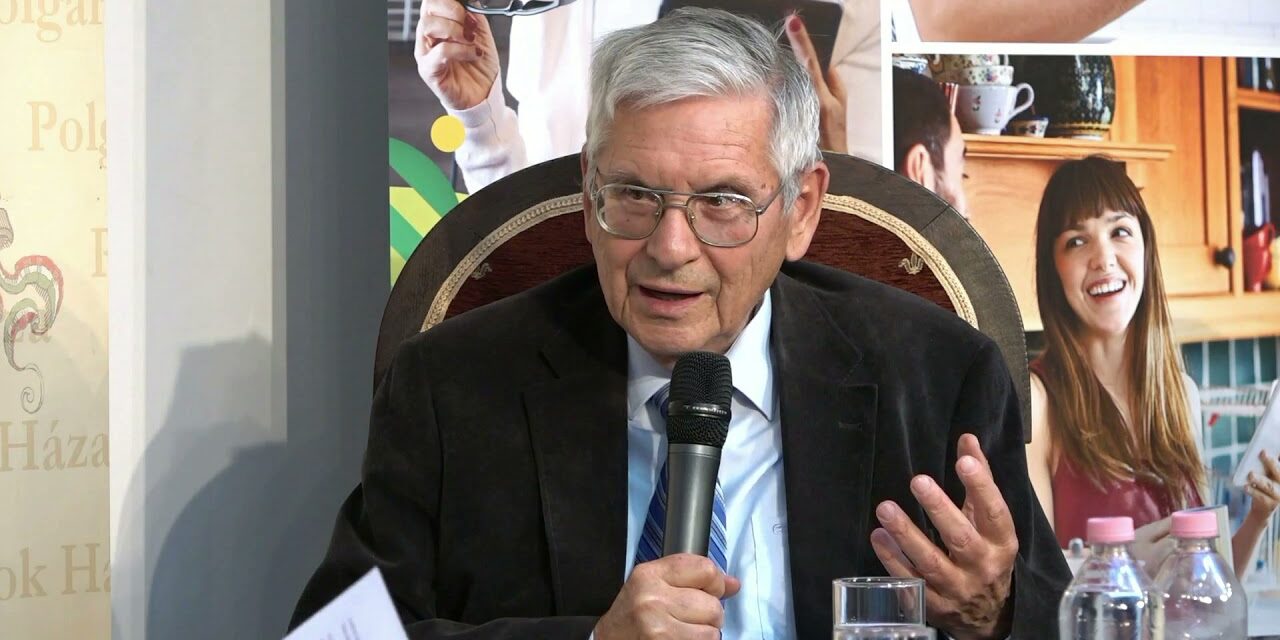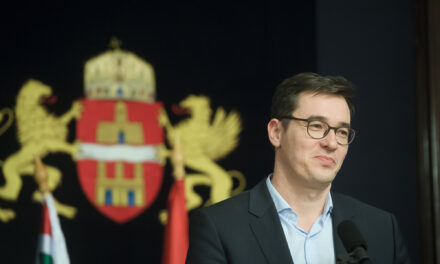What do conservatives in many countries agree on? Above all, the "draining of the swamp", that is, the termination of the rule of global money power against supranational and national interests.
The origins of the conservatives' view of a large international army date back to 1974, when the American Conservative Union first organized this annual gathering, which has since become international. At the first meeting in 1974, Ronald Reagan gave the opening speech and presented his ideas about America, who was recognized by the country as a presidential candidate and a few years later, in 1981, he actually became the president of the United States. Donald Trump's presidential career also began at this conference called CPAC (Conservative Political Action Conference) when he was invited to the gathering organized in 2011.

Former US President Donald Trump, candidate for the presidential nomination of the Republican Party, at a campaign rally in Rock Hill, South Carolina on February 23, 2024. The presidential election will be held on November 5 in the United States. MTI/EPA/Erik S. Lesser
The conservative conference became international from the second half of the 2010s. The first CPAC meeting abroad was held in Japan in 2017, followed by Australia, Brazil and South Korea in 2019, and from 2022 in our country and Mexico, so the conservative movement has expanded internationally. What do conservatives in many countries agree on? Above all, the "draining of the swamp", that is, the termination of the rule of global money power against supranational and national interests. At a conference held at the CPAC headquarters in Maryland this February, for example, Nayib Armando, the president of El Salvador, outlined the tasks as follows: "The next president of the United States must not only win the election, but must have the vision, the will, and the courage to do so." whatever it takes, and above all, he must be able to recognize the underlying forces conspiring against him. These dark forces are already taking over your country. They may not see it yet, but it has already happened”. Even former British Prime Minister Liz Truss blamed the "deep state" for sabotaging her brief tenure as Prime Minister and insisted the Conservatives must regain power to save the West. Incidentally, he also wrote a book about this entitled Ten Years to Save the West, which will be published soon.
Another common theme is stopping the woke movement, which regularly comes up at CPAC events. At last year's CPAC conference in Budapest, for example, American representative Barry Moore dealt in detail with this issue, which is particularly serious in America, and gave his presentation the title "No Country for Woke Men", which could perhaps be translated into Hungarian as "No Country for Woke Men" for". According to a liberal interpretation, woke-ism means an awakening to self-awareness, the eradication of the ideological legacy of oppression carried over generations, in fact the actual effect is the eradication of the traditional culture of individual countries, the stigmatization of people who adhere to national traditions and conservative values, and now even their condemnation in court.
A third common theme is stopping illegal immigration. Just a few decades ago, it was completely natural that you couldn't just immigrate to a country, for example, in the United States, there were quotas that regulated immigration, as part of the Bracero (manual worker, from Spanish) program. Today, the liberal background power essentially wants to make immigration free in both America and Europe. As long as immigration was limited to reasonable quotas and primarily adapted to the labor needs of the receiving country, the social problems caused by immigration were manageable. Today, especially in Europe, parallel societies are being formed as a result of mass illegal immigration, which is obviously unacceptable for conservatives who want to preserve the identity of the nation-state.
It probably goes without saying that the approximately three thousand participants representing conservative values who came to Budapest from five continents this year agreed to protect the family from gender ideology and the task of stopping the green frenzy that is destroying European industry was also on the agenda.
What is controversial among conservative forces is the assessment of the Russian-Ukrainian war. When Mateusz Morawiecki, the former Polish Prime Minister, mentioned this, he received relatively little applause from somewhere in the gallery of the lecture hall, although his entire speech was enthusiastically received.
The individual delegations were also prepared with written materials. Among these, I would highlight the study of the Polish Ordo Juris Institute, which is about the latest amendment plan of the Treaty of Lisbon, giving a thorough critique of it. The material entitled Why do we need sovereignty summarizes in ten topics (for example: climate policy, border protection, industrial policy, family protection, etc.), how the proposal already accepted by the European Parliament, if it becomes law, will limit our national sovereignty.
Perhaps, it would not hurt if the wider domestic public would become aware of this intention of the European Parliament, even before it casts its vote for one of the parties in the European Parliament elections.
The European party of the Identity and Democracy (ID) group of the European Parliament (Identity and Democracy Party) launched a magazine, the spring issue of which, dealing with the European elections, this year was also published in an English-Hungarian, bilingual edition. On the one hand, the magazine presents the views of the party's leaders, which can be interesting for Hungarian voters, because they will learn what the forces in other countries who cling to their nation consider to be an important problem to be solved, and they will see that other people's problems are very similar to ours, which encourages unity. justifies it. Another part of the magazine deals with specific issues such as European institutions, immigration, the green frenzy that is destroying Europe, which is also interesting for Hungarian readers and voters.
At this year's gathering in Budapest, there was great enthusiasm and optimism regarding the European Parliament and American elections. But we must be aware that even in the most favorable case, the representatives of the parties professing conservative values will give at most one third to the European representatives, which is a significant proportion, but not decisive.
The liberals (Renew Europe), the socialists (S&D) and the people's party (EPP) can be taken as a group, they will be the ones who make the voices heard, and they can get everything accepted by the parliament with a simple majority. So the conservatives have to prepare for a long march, and if they do everything right, and the catastrophic mistakes of the current (and remaining in character) EU leadership become widely apparent to Europeans, then the 2029 elections could really bring about a turning point.
The process can be accelerated if Trump wins the November elections, but, as the Americans say, you shouldn't put all your eggs in one basket, you also need a plan B. AB's plan is the further organization, the creation of an efficiently functioning conservative international, by creating its financing, media and academic background.
Strategic patience is needed, let's not forget that our opponents today also needed many decades to occupy the institutions and the leading positions of the spiritually empty traditional right and left parties.
The author is an economist and a consultant to the National Forum
Featured image: civilek.info













